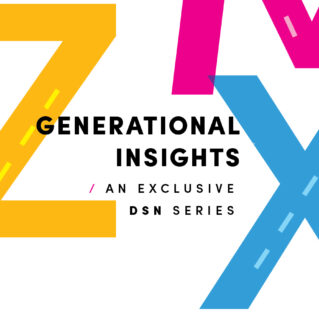The U.S. labor market is rapidly evolving. Despite 50-year lows in unemployment, wages have remained stagnant when adjusted for inflation over the past 50 years, and household debt (including student loan, medical, and credit card debt) has reached record levels ($13.5 trillion).
Within this context, DSA commissioned a study by Ipsos, a global leader in market research, to survey a robust, representative sample of Americans to address:
- What are Americans’ attitudes toward flexible, entrepreneurial earning opportunities?
- What do aspiring entrepreneurs want?
- What are Americans’ attitudes and opinions toward direct selling, and how have they changed?
- How do we make direct selling the best opportunity to be an entrepreneur?
- What messaging resonates most with direct selling prospects?
Here are three of the many key insights from the study:
1. Americans show strong interest in flexible, entrepreneurial opportunities, and younger generations are particularly interested. 79 percent of Americans in this study indicated some interest in finding flexible ways to make money in the next 12 months, with Gen Z showing the most interest of any generation (92 percent). When looking for new ways to make money, the three features most cited as very or somewhat important are becoming more financially secure (92 percent), low start-up costs (92 percent), and flexibility (91 percent).
2. Direct selling is competitive against gig competition and has broad appeal. 79 percent of Americans have positive/neutral attitudes toward direct selling (which is comparable to attitudes toward the gig economy). The demographic breakdown of Americans that indicated an interest in direct closely reflects the overall U.S. population. A key finding here is that even though the U.S. direct selling salesforce is 75 percent female, there’s close to a 50-50 percent level of interest among women (48 percent) and men (52 percent), meaning there’s a significant growth opportunity for men to become direct sellers.
3. Direct selling is well-positioned to appeal to future generations. According to the U.S. Federal Reserve, boomers and Gen X owned 21 percent and 8 percent of U.S. wealth, respectively, when the average age of each was 35. The average millennial turns 35 in 2023, and right now, they own 3 percent.
With this apparent disparity across generations, appealing to younger generations is vital because they represent the future of the labor market. The great news is that direct selling appeals more to millennials and Gen Z than older generations: Gen Z has the most favorable opinion toward direct selling (88 percent), followed by millennials (85 percent) (with the overall average being 78 percent).
All DSA members will receive the full Consumer Attitudes & Entrepreneurship Report in early 2020 as a benefit of membership. To receive even more direct selling data and insights, make sure to participate in DSA’s 2020 Growth & Outlook market-sizing survey, which is open to all direct selling companies and is in the field now: www.dsa.org/GO2020. As a benefit of your participation, you’ll receive the results report at no cost once it’s compiled later this year!


